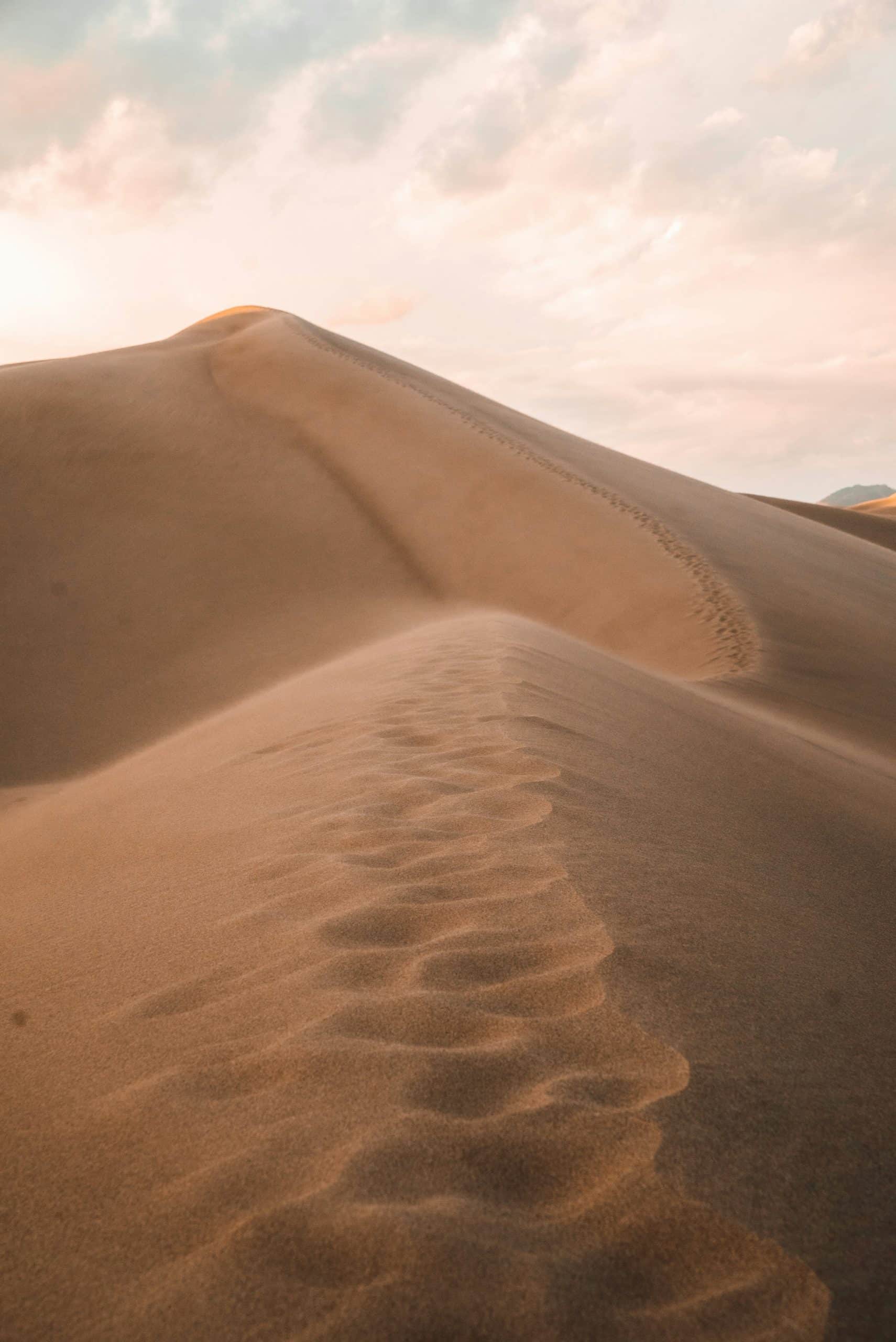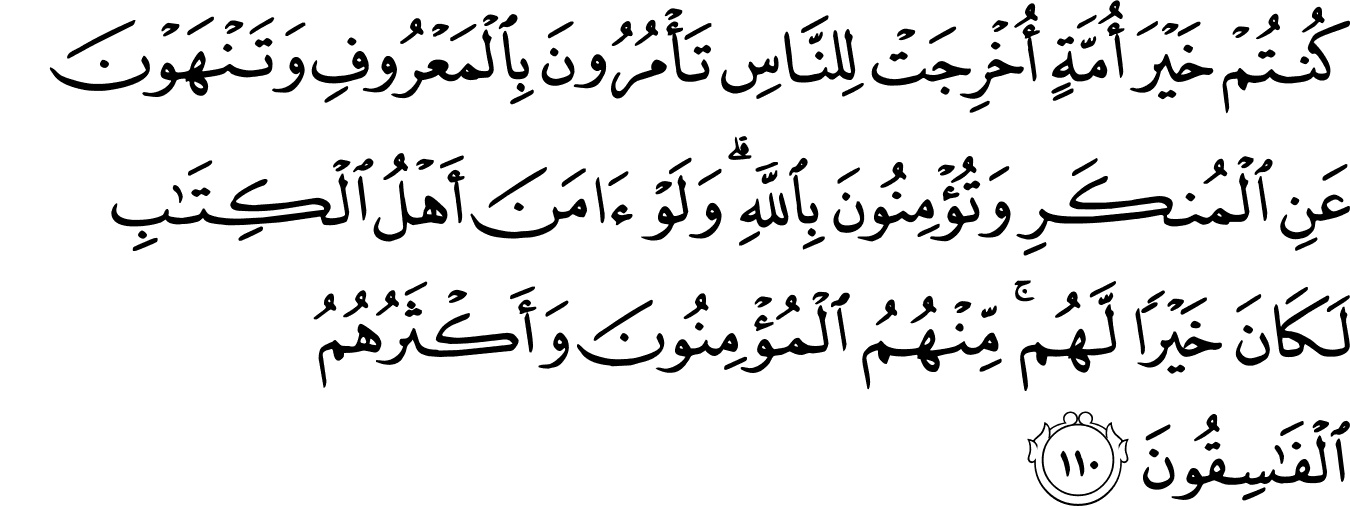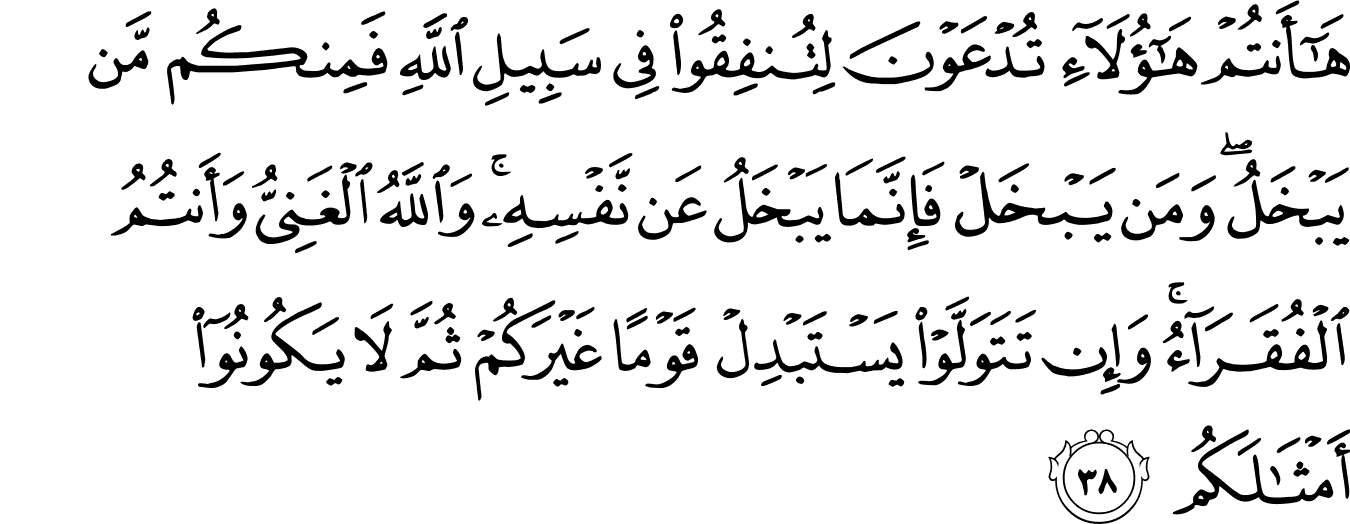#Islam
What Is Your Role In The Story Of Islam? : On Hajj, Eid, And Surat Ibrahim
Published

Eid hasn’t felt like Eid of late. I’ve worn my best clothes, put on my best fragrance, recited my takbīrāt, sent a wave of messages, connected with family and friends – but my heart has been weighed by a continuous sense of overwhelming grief as this scripted play of celebration takes place against a backdrop of genocide. Here, we embrace one another in the joy of celebration; there, they embrace one another to seek any morsel of relief from the anguish of continuous loss at the hands of merciless slaughter. Here, we gather with loved ones over food and drink; there, they gather around trucks that should be transporting the little food they have only to find it to be a Trojan horse carrying their murderers. What is Eid to a bystander of mass murder, a powerless onlooker made to watch the endless massacres of his own brothers?
What is Eid but a reminder of my own uselessness? What is happiness but a burden to a heart heavy with the grief of helplessness?
It is in these moments that the eye wanders over to the embellished covers of a small book tucked away in a corner of the topmost shelf of a bookshelf. When the world stops making sense; when the grief begins to overwhelm; when the irreconcilable contradictions inherent in our very being are no longer avoidable; when we can no longer procrastinate from pondering over the incoherence of our existence; that is when our hearts, then our eyes, then our hands reach out to the Quran. O, light emanating from the uncreated speech of God! Come, illuminate the darkness that creeps ever closer to the edges of our souls.
Keep supporting MuslimMatters for the sake of Allah
Alhamdulillah, we're at over 850 supporters. Help us get to 900 supporters this month. All it takes is a small gift from a reader like you to keep us going, for just $2 / month.
The Prophet (SAW) has taught us the best of deeds are those that done consistently, even if they are small. Click here to support MuslimMatters with a monthly donation of $2 per month. Set it and collect blessings from Allah (swt) for the khayr you're supporting without thinking about it.
As I contemplate this mix of joy and grief, my mind has been continuously pondering over the story of Ibrahim 


The Story
There are three principal characters in this story: Ibrahim 


The story itself is a perplexing one, something entirely unintelligible to a secular ethos. Ibrahim and his wife Sarah 






According to traditions, as he leaves Hājar 
Both Ibrahim 



Abandoned in the desert [PC: Josh Gordon (unsplash)]
 , a noblewoman given as a servant to Ibrahim
, a noblewoman given as a servant to Ibrahim  and Sarah
and Sarah  , who leaves her native Egypt only to be abandoned in a desert with her son at the command of a god she can neither see nor hear. Her absolute certainty in Allah
, who leaves her native Egypt only to be abandoned in a desert with her son at the command of a god she can neither see nor hear. Her absolute certainty in Allah  , however, is not decoupled from desperation for her son. This fear is manifested in her famous running between the hills of al-Ṣafā and al-Marwah looking for nourishment until the well of Zam-Zam bursts forth from under the feet of her son.
, however, is not decoupled from desperation for her son. This fear is manifested in her famous running between the hills of al-Ṣafā and al-Marwah looking for nourishment until the well of Zam-Zam bursts forth from under the feet of her son.
And here is Ibrahim 

The Duʿā
While the duʿā is long and with significant consequence, I want to focus on two ayahs specifically. In ayah thirty-seven, Ibrahim 
“Our Lord! I have settled some of my offspring in a barren valley, near Your Sacred House, our Lord, so that they may establish prayer. So make the hearts of ˹believing˺ people incline towards them and provide them with fruits, so perhaps they will be thankful.”
There is rhyme and reason behind the commands of Allah 




But understanding the wisdom behind a command does not mean a heart is not grieved. He, alayhi al-salām, still has a human heart that beats inside his human chest. And so, before continuing with his duʿā, he turns his grief to Allah 
“Our Lord! You certainly know what we conceal (from grief) and what we reveal. And nothing on earth or in heaven is hidden from Allah.” [Surah Ibrahim: 14;38]
Imam al-Ṭabarī states that the first statement is that of Ibrahim 




In this way, Ibrahim 







And when the final Messenger of Allah, the Rasūl 


So, too, did Allah 

The Sacrifice of Palestinians Will Not Go Unheeded
One of the most powerful motifs in this story is that of mere presence as sacrifice for the sake of Allah 



So, too, is the mere unrelenting presence of the Palestinian people a sacrifice to maintain the sanctity of the sanctuary of al-Aqṣā. Under occupation by a regime with designs on the land, on the people, on the ḥaram itself, the valiant sentries born in the land of prophets and saints give their very breath and blood to protect sanctified land, the first qiblah, the site of the isrāʾ and miʿrāj. And for the crime of that mere presence, they are slaughtered mercilessly and treated with utter indignity.
But like Ibrahim, Yaʿqūb, and Yūnus 




What Is Our Place in the Story of Islam?
While we take some solace in the knowledge that Allah 

Where is our place in the story of Islam? [Etienne Girardet (unsplash)]
We have forgotten that we are born a people with a divine mission on this earth. Other people can think that they are born on this earth to experience its pleasures and joys and to expire as painlessly as possible, but we are born the heirs of Ibrahim and Ismāʿīl 
“You are the best community ever raised for humanity—you encourage good, forbid evil, and believe in Allah. If only the People of the Scripture had believed, it would have been better for them. Among them are believers, but most of them are defiantly disobedient.” [Surah ‘Ali-Imran: 3;110]
Just like Ismāʿīl 
Instead, we have traded our civilizational purpose for the capitalist dream: a car, a house, a small family, and vacations in the summer. We build nothing. We create nothing. We aspire to nothing. We are prepared to sacrifice nothing. And, yet, we are surprised when we achieve nothing and are treated like we are nothing.
What is our role in the story of Islam? This story requires characters who will build its economic, artistic, educational, spiritual, intellectual, and political foundations. What part of its foundation are we going to be a part of building? Are we ready to sacrifice what is necessary to revive an entire civilization? Or are we going to simply be those who complain incessantly but do little and sacrifice less? Because, in the end, this story belongs to Allah 
“Here you are – those invited to spend in the cause of Allah – but among you are those who withhold [out of greed]. And whoever withholds only withholds [benefit] from himself; and Allah is the Free of need, while you are the needy. And if you turn away, He will replace you with another people; then they will not be the likes of you.” [Surah Muhammad: 47;38]
Related:
– Optimism in Times of Adversity: How The Prophet Did It
– Think Like Ibrahim | The Essence of Surah Baqarah | Shaykh Akram Nadwi
Keep supporting MuslimMatters for the sake of Allah
Alhamdulillah, we're at over 850 supporters. Help us get to 900 supporters this month. All it takes is a small gift from a reader like you to keep us going, for just $2 / month.
The Prophet (SAW) has taught us the best of deeds are those that done consistently, even if they are small. Click here to support MuslimMatters with a monthly donation of $2 per month. Set it and collect blessings from Allah (swt) for the khayr you're supporting without thinking about it.
If a man is what he does, then M. Saad Yacoob is a student (of knowledge and other, less useful things), an aspiring writer, and poet. If it is what he's learned, then Saad is a Bachelor's in English from George Mason University and a PhD Student in Arabic and Islamic Studies at Georgetown University. If he is what he eats, then Saad is currently cake rusk. But, perhaps, a man is not what he does or knows or eats but how he's been formed and who he's come to be. If so, then Saad comes from the land between two rivers and has flowed like water around the world. His lineage may stretch back centuries, but it is like an uprooted tree floating upon the roaring current of a river beset by flood. He is, as his family has always been, a wanderer, liminal in every way.


What Islam Actually Says About NonMuslim Friends | Night 8 with the Qur’an

Ramadan, Disability, And Emergency Preparedness: How The Month Of Mercy Can Prepare Us Before Communal Calamity

Somalis In Firing Line Of American Crackdown

Week 1 in Review: Is Your Teen Actually Changing? | Night 7 with the Qur’an

NICOTINE – A Ramadan Story [Part 1] : With A Name Like Marijuana

30 Nights with the Qur’an: A Ramadan Series for Muslim Teens

How to Make this Ramadan Epic | Shaykh Muhammad Alshareef

[Podcast] The Parts of Being an Imam They Don’t Warn You About | Sh Mohammad Elshinawy

[Podcast] Guardians of the Tradition: Muslim Women & Islamic Education | Anse Tamara Gray

Starting Shaban, Train Yourself To Head Into Ramadan Without Malice

What Islam Actually Says About NonMuslim Friends | Night 8 with the Qur’an

Week 1 in Review: Is Your Teen Actually Changing? | Night 7 with the Qur’an

Why Your Teen Wants to Change Their Muslim Name | Night 6 with the Qur’an

The Comparison Trap | Night 5 with the Qur’an

When You’re the Only Muslim in the Room | Night 4 with the Qur’an
Trending
-
#Islam1 week ago
30 Nights with the Qur’an: A Ramadan Series for Muslim Teens
-
#Current Affairs1 month ago
[Podcast] Should Muslims Ally with Conservatives or Progressives? | Imam Dawud Walid
-
#Islam4 weeks ago
How to Make this Ramadan Epic | Shaykh Muhammad Alshareef
-
#Life4 weeks ago
[Podcast] The Parts of Being an Imam They Don’t Warn You About | Sh Mohammad Elshinawy












Mirza Yawar Baig
June 21, 2024 at 6:39 PM
Beautiful article ما شاء الله
May Allahﷻ grant me the Tawfeeq to heed this beautiful advice. May Allahﷻ bless the author and reward him in keeping with His Majesty and Grace.
Instead, we have traded our civilizational purpose for the capitalist dream: a car, a house, a small family, and vacations in the summer. We build nothing. We create nothing. We aspire to nothing. We are prepared to sacrifice nothing. And, yet, we are surprised when we achieve nothing and are treated like we are nothing.
سبحان الله
What a powerful and true statement. جزاك الله خيرا
yaseen
June 24, 2024 at 8:52 AM
It is really great and informative article.
Jazzak Allah
femalequranteacher
June 25, 2024 at 4:33 AM
“This article beautifully weaves together the profound narratives of Hajj, Eid, and Surat Ibrahim, offering a refreshing perspective on their relevance in our lives today. It reminded me of the deep spiritual meanings behind these pillars of Islam—Hajj as a symbol of unity and equality, Eid as a celebration of sacrifice and community, and Surat Ibrahim as a testament to unwavering faith in God’s guidance”
YASEEN
November 7, 2025 at 6:07 AM
Jazzak Allah It is really great and informative article.